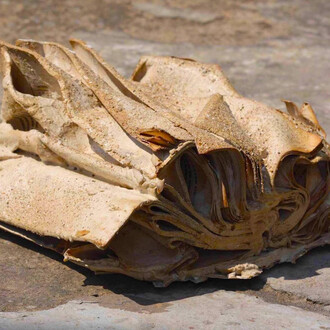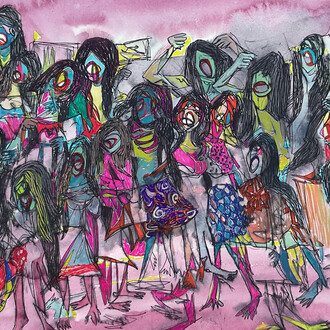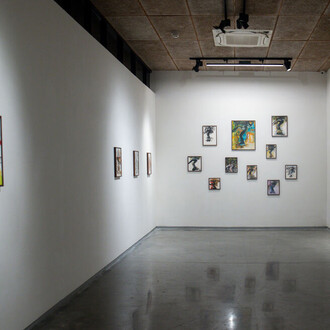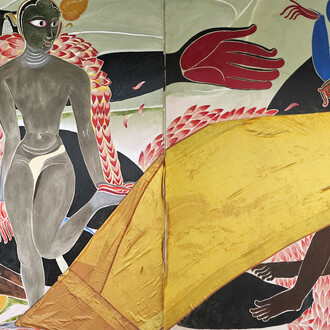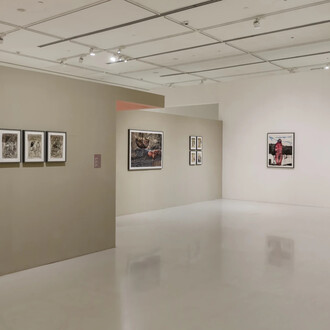Maqbool Fida Husain (1915-2011), one of the most iconic contemporary artists of India, continues to demand critical attention to his multi-dimensional practice that embraced various media formats, defied artistic hierarchies and displaced the divide between high and popular art. The historical extent of India as one of the oldest civilizations in human history and an independent nation-state that gained freedom from colonial subjugation in 1947 , unfolded obsessively in M.F. Husain’s prolific oeuvre.
An expansive post-colonial consciousness informed his practice, which involved adapting indigenous idioms in his expression and breaking free from colonial indoctrination. Seamlessly weaving together mythologies, shared histories, literature and manifestations, Husain articulated his syncretic vision of a modern India through a lexicon of symbolic iconographies anchored in a secular artistic sensibility.
The exhibition title uses two opposing expressions ‘nomad’ and ‘rooted’ that counter each other but in conjunction, create an imaginary panorama to deliberate the complex figure of Husain. His nomadic predilection needs to be read through the peculiarities that shaped his life. Much has been written about Husain ‘walking barefoot across the nation’ and his pressing impulse to be on the streets, at roadside cafes, sipping tea and reading the newspaper, stepping into the lanes and by lanes of the city, sensing the pulse of the everyday, painting amidst people, witnessing and fathoming the complex and layered land called India.
The breadth of experiences he gathered evoke multiple journeys into time and place while moving across borders and locations, ruminating on chosen constellations of his works that dwell upon ideas of mobility and migration. Aligning to that, the exhibition is an attempt to unpack expanded notions of the ‘yatra’(journey), as a crux to civilizational ethos, artistic calling as well as a metaphor for transformation.





